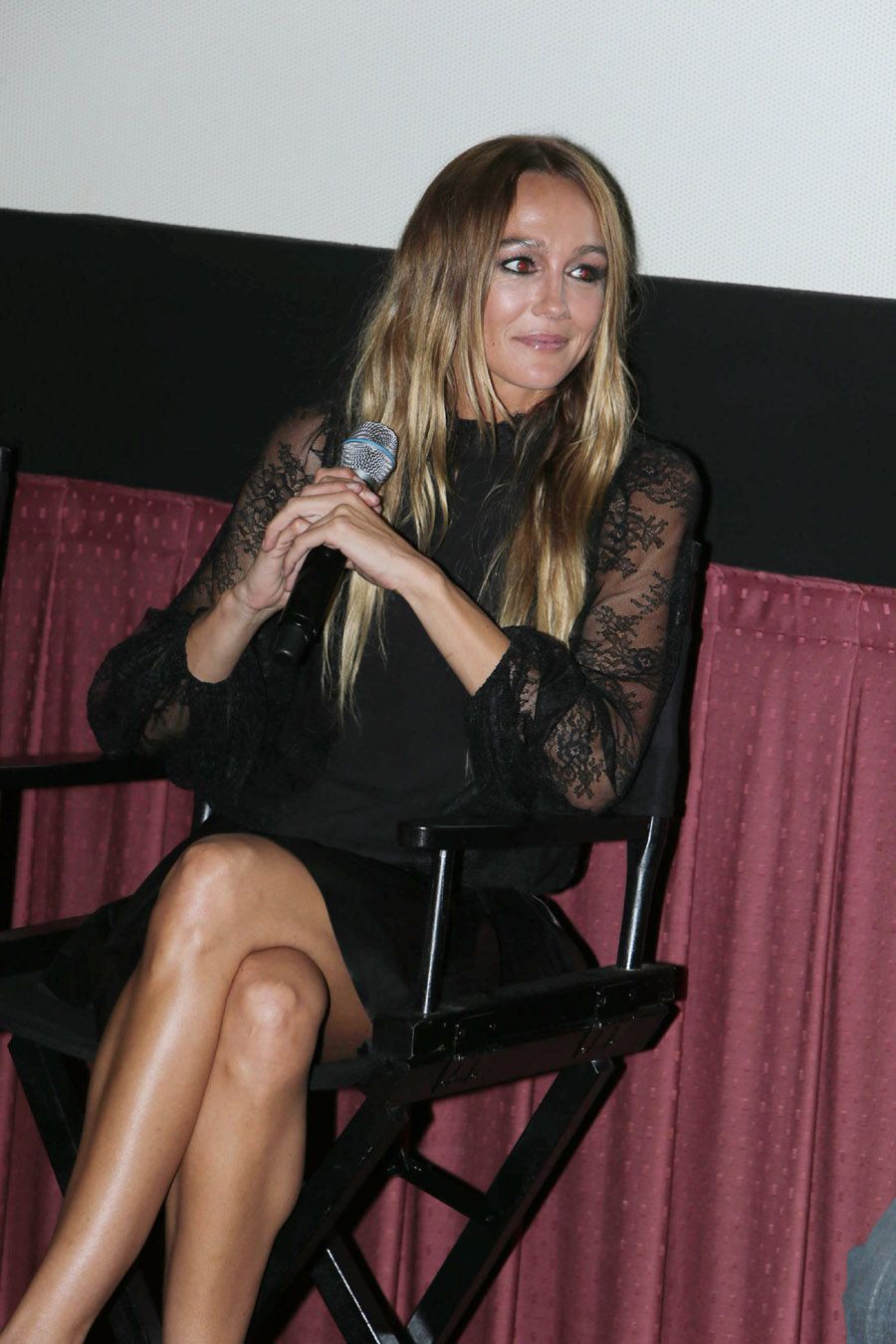Sharni Vinson is probably best known – with good reason – as the star of Step Up 3D. Even in a film where she was threatened to be overwhelmed by incredible dancers, she drew in viewers with her own commitment and gung-ho attitude. But in You’re Next, she takes that resourcefulness to another level, playing a character who inadvertently becomes a one-woman killing machine after the home of her boyfriend gets attacked by mysterious invaders. Although screenwriter Simon Barrett and director Adam Wingard, by her own account, will change the face of modern horror with the film, it’s Vinson who pairs that face with an equivalent personality.
Spinoff Online sat down with Vinson at Comic-Con International 2013, where she discussed the chronology of You’re Next, including the very moment when she realized she and her collaborators were doing something unique. Additionally, she discussed the process of working with Barrett and Wingard to perfect the film’s thrilling but often funny tone, and compared her character’s reactions to horrific scenarios with her own.
Spinoff Online: When you first read the script for You’re Next, how far did you get into it before you realized that it was something dramatically different from most slasher-home invasion movies?
Sharni Vinson: I can't really remember the exact moment, but it would have been around page 30, from memory. But it was at the point where basically the first kill happens – the first kill from me, from the female lead. I just thought, "Well, I didn’t see that coming. At all!" I didn’t know what I was reading at that point. I just knew that a script landed in my hands and the title said You’re Next, which could be taken as incredibly smart or incredibly tacky when you don’t know what type of a movie you’re dealing with. I started to read it and it was about at the point where the tables turned that I thought, "Oh, this is a character that is tough. She’s not familiar to me in a horror movie. This is unusual." I really, really love the message that she’s getting across here: the sort of kick-ass tough final girl, stand up and cheer, where you walk out of a horror movie feeling uplifted as opposed to depressed. It's unusual. I felt good at the end of that script, you know, and you feel good leaving the movie for the same reasons. It's very unique.
How reliant were you on Simon Barrett and Adam Wingard to bring out the tone of the movie? There’s obviously an intensity to the film, but there’s also this comedic undercurrent.
That is a really good question, because there was a moment when we were sitting on set and me and Nicholas Tucci, who plays Felix, looked at each other and said, "Are we shooting a horror [movie] or a comedy? Because this shit is funny!" We were doing this dinner table scene, and it was all improv’d and in the moment, with all these amazing actors that to this day are the best I’ve worked with – they’re just genius. Maybe part of that has to do with the fact they’re all directors and they have a very thorough view of this business and how to get that exact tone across. Because they were a family and they already worked together a lot, they had such a good chemistry as well, so they were really able to feed off of each other very easily. I just felt a bit on the back foot in that moment – everything was new. An independent film, working with improvisational actors, it was very new to be under these circumstances.
As far as it all being a process, that first moment that I noticed [the] unusual tone was when we were first shooting that dinner table scene. Obviously, watching it now, I was completely naïve and unfamiliar [and] I didn’t know that part of the movie was going to be that smart until after the fact. All I knew, and I made the choice, was that I’m not funny; [those] guys are funny. [They] take the comedy element here. Because all I know how to do is make this character as believable and real as I possibly can, and I don’t think she’s that funny. I think she’s just getting shit done.
Your character is obviously scared, but how susceptible are you to films like these? Do you approach them from a more analytical standpoint, or are you genuinely frightened by them?
No, I try and figure it all out. I try to be that audience that’s like, "Oh, I’ve got this." I know what’s going to happen and I try to predict where it’s going. The cool thing about You’re Next is that nobody’s predicted it yet, because it does take on so many different wavelengths of journeys for the audience. Just when you think it’s going to go one way, it goes another way.
I grew up watching horror movies like you wouldn’t believe; from probably too young to be able to watch them, I was already watching them. I haven't seen it done like [You're Next] before – I haven’t seen a lead character done like this before -- maybe male but not female. All of those things, I just felt like that was the whole point.
People have been knocked out by this movie since the first time it was screened at the Toronto Film Festival. When did you become aware that you were truly doing something unique?
There was a moment, a very specific moment that I’ll never forget as long as I live. I was on set and I think it was like day two, the very first week of shooting – very, very early on. I was standing there; I feel like I’m probably involved on screen in about 95 percent of the movie, but the five percent of the movie that I’m not involved with, I was still on set every day, and I really wanted to be involved. It’s a story, and it’s all an arc of a story, and so the more I see the more I understand.
I was there on day two when I didn’t really have to be there, and I watched Adam basically pull back on track – he was just pulling back and pulling back. He held this shot for about, oh, thirty seconds? I was just like, "What is he doing? He’s just wasting film. Why hasn’t he yelled cut yet?" I didn’t get it. I thought, "Why doesn’t he yell cut?"
After about ten seconds, the more that it kept going, I found myself doing this – going further into the screen, because something was going to happen. I started getting scared, because he was just holding this nothing shot where Barbara Crampton’s washing dishes in the kitchen. I thought, "Oh my God, I’m terrified and nothing’s even going on right now." I turned to the producer and I said, "This is genius. Adam Wingard is going to change the horror genre in this film." I said it on the second day, and I won’t go back on my word – because I still reckon he will do that. Because he’s a genius.


